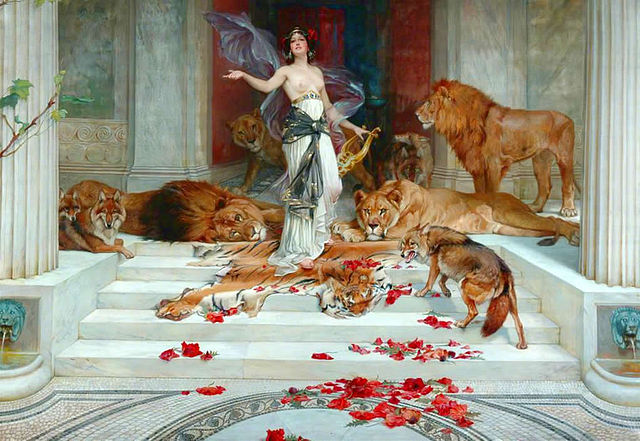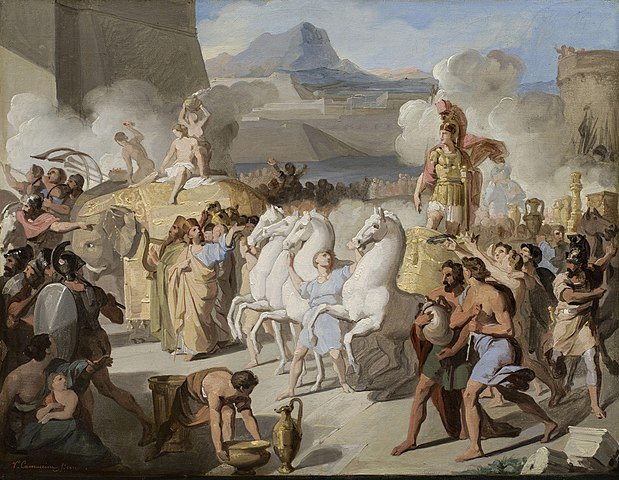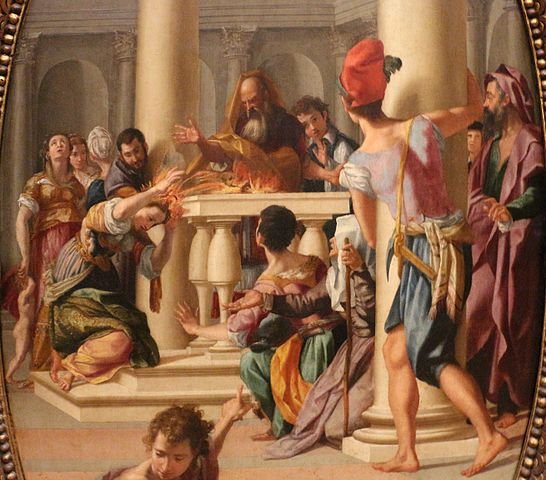On deep consideration, King Latinus accedes to Aeneas’s request through his ambassadors for peaceful permission to settle, and is ready to offer him his daughter’s hand in marriage. The prospects for peace look bright, but they are fragile and Juno is ready to take a hand and sow discord.
Hear the extract in Latin and follow in English here.








